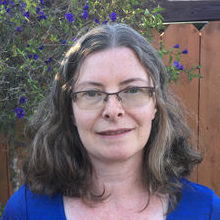Research Experience and Training Coordination Core
Summary
Trainees are critical to achieving the overall goals of the Berkeley SRP Center related to our central theme: “Systems approach to address the complex problems associated with Superfund contaminants”. Trainee research—in environmental health, environmental science, environmental engineering, and data science—will help to quantify perinatal and childhood exposures; protect disadvantaged communities from exposures; understand the totality of chemicals to which communities are exposed; account for interactions among mixtures of chemicals at hazardous waste sites and in health impact assessment; and develop novel chemical- biological approaches to remediate chemicals in situ and persistent chemicals resistant to traditional methods. To best address these complex problems, the objectives of the Research Experience and Training Coordination Core (RETCC, Core D) are to recruit Trainees with diverse backgrounds, perspectives and skills (Aim 1); foster cross-disciplinary fluency and training and interdisciplinary research opportunities within the Berkeley SRP, and among West-Coast SRP Centers, to address real-world problems (Aim 2); coordinate opportunities for trainee participation in research translation and community engagement training and activities (Aim 3); provide professional development training and opportunities to develop skills needed to participate in, and lead, multidisciplinary teams to address complex environmental problems (Aim 4); and, evaluate training activities and provide information on trainee accomplishments to the SRP (Aim 5). Through interaction with all other Cores and research Projects, RETCC will provide all trainees with a holistic training experience to increase understanding and engagement in the overall goals and SRP mandates, foster interdisciplinary skills and mindset, and increase social and cultural awareness of the affected communities in the context of SRP and California’s Human Right to Water Law. We will leverage campus resources and the expertise of SRP faculty, alumni, and stakeholders to provide a unique and dynamic curriculum that includes bi-weekly seminars and workshops on a range of topics related to Berkeley SRP goals, hands-on training, projects, and cross- mentoring, interdisciplinary classes such as Health Risk Assessment, Green Chemistry and Riskscapes and Environmental Justice. We will promote and support hands-on activities such as planning a virtual forum to foster interdisciplinary research among Centers; the preparation of outreach materials and videos; engagement with stakeholders and communities on projects; networking with alumni and professionals in a wide range of related fields; and leadership in NIEHS’s SPAN and other organizations. We will encourage our trainees to participate in the NIEHS Annual Meeting and other meetings and to apply for honors and awards including the SRP KC Donnelly Externship Program, SRP Karen Wetterhahn Memorial Award and the Berkeley Big Data Fellowship. We anticipate recruiting 27 trainees: 12 postdocs (2.5 years); 6 MS students (2 years); and 9 PhD students (4-5 years) and our goal is to double the percentage of URM Trainees to 18% (5 Trainees).
Core Leadership

Dr. Cliona McHale
Core Leader
Research Specialist, School of Public Health
University of California, Berkeley